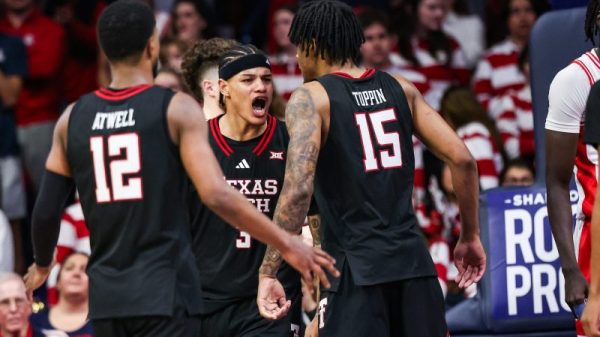Long-hitting Jim Dent, known as one of the best Black golfers of his era after going from the caddie yard at Augusta National Golf Club to winning a dozen times on PGA Tour Champions, died on May 2, according to his family. He was 85.
Born on May 9, 1939, in Augusta, Georgia, Dent grew up caddying at both storied Augusta National, home of the Masters, and nearby Augusta Country Club. At the 1956 Masters, Dent caddied for Bob Rosburg, who went on to win the 1959 PGA Championship and become best known as a TV commentator after his playing days. “We shot 41 on the back nine or we might have won,” Dent recalled.
As a child, Den’ts father, Tom, drove a pulpwood truck and owned wooded farmland not far from Augusta Country Club. The fourth of six children, Dent’s job on the farm was to make the fire in the morning.
“I was big enough to do that,” Dent told the USGA. “I was still real young when my parents died, but there was my aunt. Her name was Mary Benton, a great lady in my life.”
Dent’s mother, Carrie, died when he was six. His father died when Jim was 12. Benton, a housekeeper at one of Augusta’s big houses, raised Jim and three of his siblings with a firm hand.
“The first time I caddied, I got a whuppin’,” Dent told USA Today in 1990. “My (Aunt) had told me not to. She said if I hung around with caddies, I’d learn how to gamble and drink. You know, a lot of those guys had those brown paper bags in their back pockets.
“But you know how it is. If your mother tells you not to cross the street, not to go to a certain place, if you’re an adventurous kid, sooner or later, you’ll go there.”
In another retelling of this story, he added, “Second thing I learned how to do when I learned how to caddie was shoot dice and play cards. She was dead right.”
For Dent, every loop was an opportunity to closely study elite players and apply their techniques to his own swing. By the time he was 15, Dent started to excel at the sport. He and his buddies would sneak on the back nine of Augusta Country Club late in the afternoon and play until dark. Later, he would be allowed to play there on Friday morning in exchange for cutting crabgrass out of the greens.
“There was also Augusta Municipal Golf Course, where we could play,”Dent recalled. “And I had a friend of mine who would take me to Fort Gordon, an Army base with a good course.”
Dent stood 6-3, 225 pounds, and was a talented tight end. He attended Paine College, a small, Methodist school in Augusta, on a football scholarship, although he didn’t stay long. A year later, his urge to play golf led him to Atlantic City, where he made ends meet caddying at local clubs and as a waiter.
‘I played every day until 3 or 3:30, because I didn’t have to be to work until 4:30 (p.m.),’ Dent said. ‘I was young then, I never got tired.’
He did get tired of that life, however. ‘I felt like I was in jail, working inside and looking out the window,’ he says. “I wanted to work outside. I was lucky. I met a guy, Mo Stevens, who offered me a job in Los Angeles. Every morning, we’d go to Compton College’s football field and hit balls until school started.”
Dent cut his teeth playing in events hosted by the United Golfers Association, a tour that attracted the top Black golfers from across the country before the Tour integrated. He turned pro in 1966. Dent won three times on mini tours, including the $100,000 Queen Mary event. He failed qualifying school four times before making it in 1970 at age 31. Only once ($55,095 in 1982) did he win more than $50,000 or finish among the top 60 money-winners.
‘In his career on the PGA Tour, Dent was known for one thing, and one thing alone: driving the golf ball,” wrote Jeff Williams in Newsday. “No one came to see Jim Dent putt. No one came to see Jim Dent chip. You came to see Jim Dent hit it a mile and see if the ball was in one piece.”
Dent hung around for more than 16 years without a victory while earning more than $560,000.
“To have caddied and now be out playing with these guys, you don’t think that’s a big thrill?” he once said.
Despite facing racial barriers that limited opportunities for Black golfers during his early career, Dent said he faced little discrimination on the Tour.
“You know, I never had any problems because Charlie Sifford, Pete Brown and Lee Elder, those guys just kind of paved the way,” he said. It was Brown, the first Black golfer to win a PGA-sanctioned event at the 1964 Waco Turner Open, who took Dent under his wing.
‘Pete kind of took me around the first six weeks when I was on Tour, you know,’ Dent told The Augusta Chronicle. ‘That was a blessing. Here was a man already established and he can let me hang around and learn some of the ropes there.’
Dent was reborn at age 50 when he became eligible for the Champions Tour, winning 12 tournaments between 1989 and 1998. He finished in the top 10 on the season-long money list seven times on the senior circuit, winning more than $9 million.
‘I didn’t work on what it took to beat ’em back then,’ said Dent, explaining his senior success. ‘Chipping, putting, patience. Those are the greatest things.’
In 2020, the road leading to Augusta Municipal Golf Course, aka “The Patch,” was renamed Jim Dent Way in his honor. Dent also was inducted into the Caddie Hall of Fame in 2022 as well as the African-American Golfers Hall of Fame. His journey in the game was a testament to what’s possible when passion meets persistence.



























